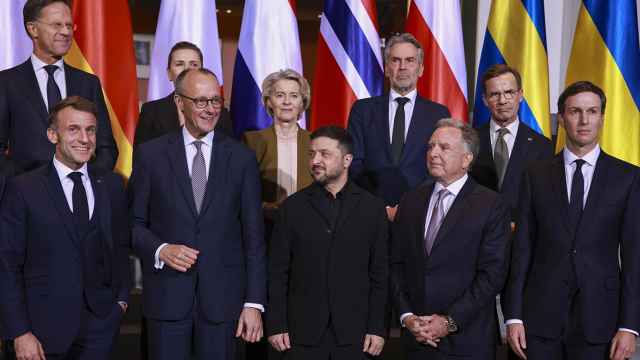JPMorgan said it was processing a payment from Russia's Embassy in Kazakhstan to Russian insurance agency Sogaz, moving to ease tensions after Moscow accused the U.S. bank of "illegally" blocking the transaction.
Russia's Foreign Ministry said on Tuesday the bank had blocked the payment "under the pretext of anti-Russian sanctions" and suggested the "unacceptable, illegal and absurd" act would have consequences for the U.S. Embassy in Russia.
The confrontation threatened to further strain ties between Washington and Moscow, which have been locked in a standoff over Russia's annexation of Crimea.
"Following consultation with our regulators, we are processing this transaction," JPMorgan said on Thursday in a statement.
Last month, Washington imposed sanctions, including visa bans and asset freezes, against several Russians close to President Vladimir Putin and against Rossiya Bank, which it said was the "personal bank" for the leader's inner circle.
Insurance agency Sogaz is 48.5 percent owned by Abros, a wholly-owned subsidiary of Bank Rossiya.
Industry consultants in Moscow say financial institutions are unclear about how to apply the new rules in some situations, such as when dealing with subsidiaries of companies which have either been sanctioned or which have shareholders that have been punished.
Guidelines on the U.S. Treasury department's website from the U.S. Office of Foreign Assets Control says that property which is more than 50 percent owned by a person on the sanctions blacklist is affected.
"U.S. persons are advised to act with caution when considering a transaction with a non-blocked entity" in which the blocked person has significant ownership interest that is less than 50 percent, the guidelines say.
Sogaz said in an emailed statement last month that Abros had decreased its shareholding to 48.5 percent, but did not specify the shareholding level prior to the decrease.
"It is up to private companies and lawyers to figure out who is subject to sanctions," said one Moscow-based lawyer. "Of course [a U.S. bank] is more scared of the American [authorities than the Russian ones]."
Also see:
Confusion Reigns in Finance as JPMorgan Blocks Russian Embassy Payment
A Message from The Moscow Times:
Dear readers,
We are facing unprecedented challenges. Russia's Prosecutor General's Office has designated The Moscow Times as an "undesirable" organization, criminalizing our work and putting our staff at risk of prosecution. This follows our earlier unjust labeling as a "foreign agent."
These actions are direct attempts to silence independent journalism in Russia. The authorities claim our work "discredits the decisions of the Russian leadership." We see things differently: we strive to provide accurate, unbiased reporting on Russia.
We, the journalists of The Moscow Times, refuse to be silenced. But to continue our work, we need your help.
Your support, no matter how small, makes a world of difference. If you can, please support us monthly starting from just $2. It's quick to set up, and every contribution makes a significant impact.
By supporting The Moscow Times, you're defending open, independent journalism in the face of repression. Thank you for standing with us.
Remind me later.





